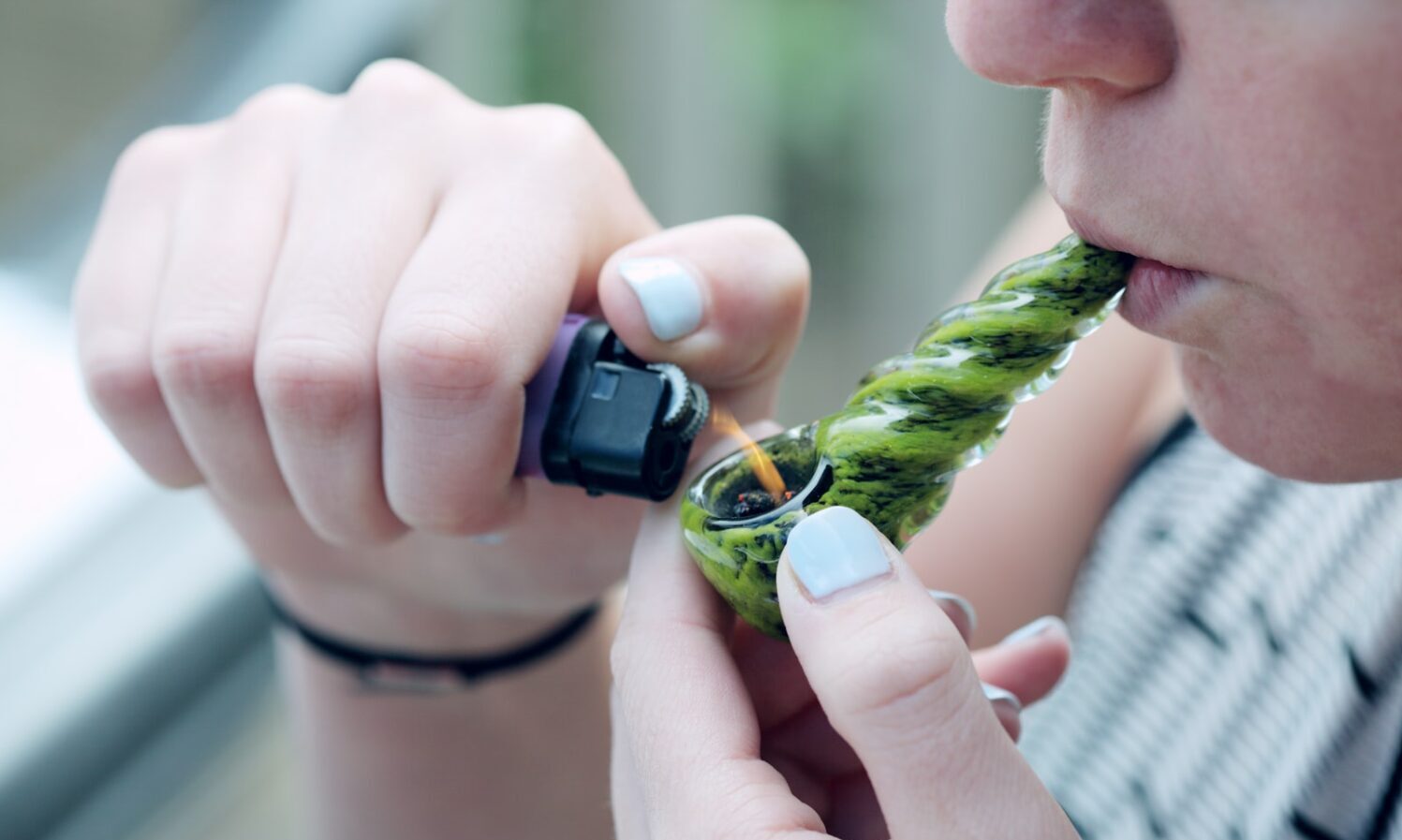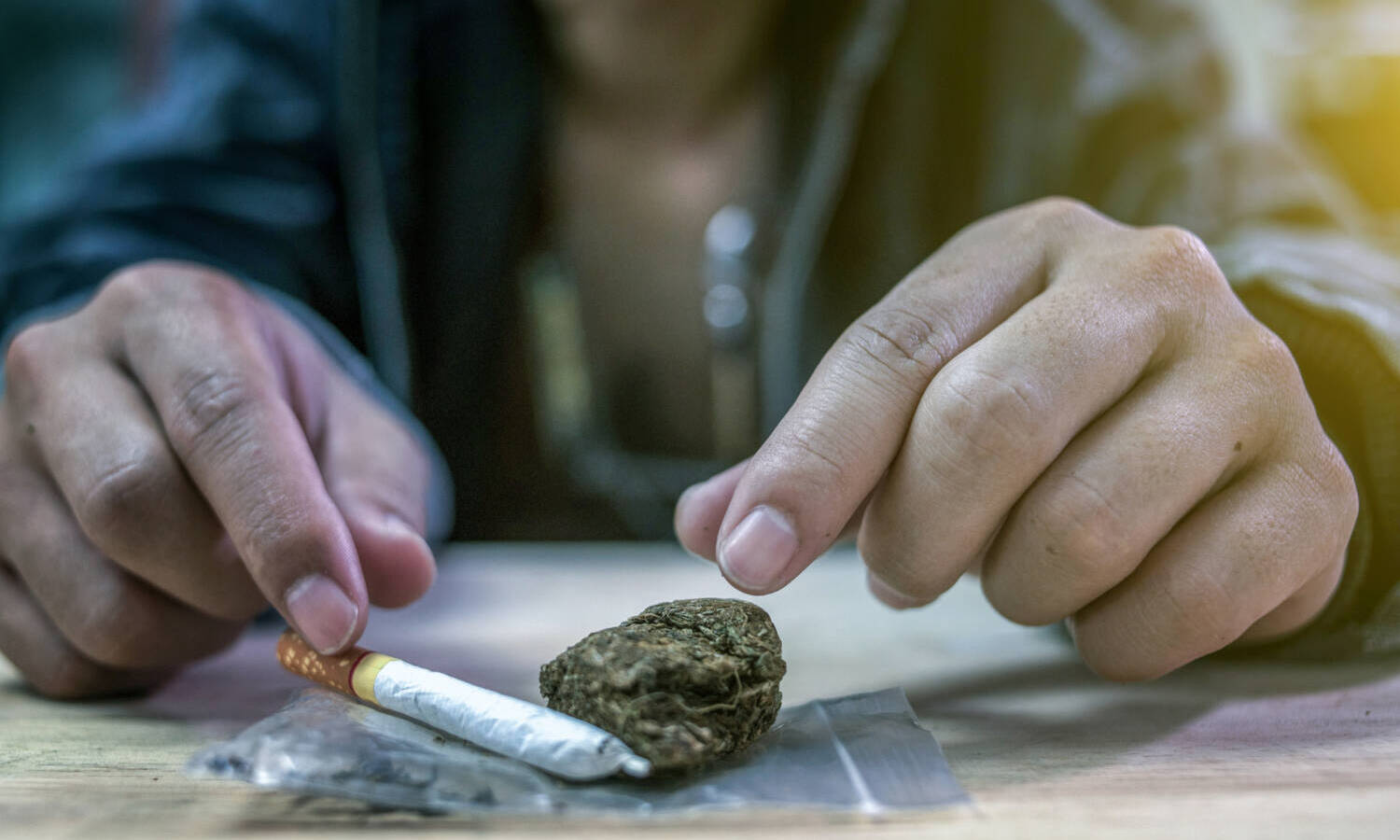Compared with users who mostly use lower-potency weed (about 5 to 10 milligrams per gram of THC), those who use THC-stronger cannabis are at greater risk of some mental health outcomes.
By
Cannabis consumers who tend to choose high potency weed for their pleasure, are at higher risk of becoming addicted or developing marijuana-caused psychosis, a new study shows.
“Overall, use of higher potency cannabis, relative to lower potency cannabis, was associated with an increased risk of psychosis and CUD [cannabis use disorder],” the authors wrote in the journal Lancet Psychiatry. “Evidence varied for depression and anxiety.”

RELATED: High-Strength THC Balanced With CBD Is Better For Your Brain, Study Shows
Compared with users who mostly use lower-potency weed (about 5 to 10 milligrams per gram of THC), those who use THC-stronger cannabis are at greater risk of some mental health outcomes. Previously, Director of the National Institute On Drug Abuse (NIDA) Dr. Nora Volkow reported how scientists have established a “standard THC unit” of 5 milligrams of THC for research. That amount is considered to produce a mild intoxication for nor-regular users.
“One of the highest quality studies included in our publication found that use of high potency cannabis, compared to low potency cannabis, was linked to a four-fold increased risk of addiction,” said study co-author Tom Freeman, a senior lecturer in the department of psychology and director of the addiction and mental health group at the University of Bath in the United Kingdom, told CNN.
As per data from the US Centers for Disease and Prevention, around three in 10 people in the U.S. who use marijuana have cannabis use disorder, while the risk of developing CUD is higher for those under the age of 18 who consume marijuana.
Consequences Of THC Strong Cannabis
Freeman highlighted that the data reveals a 76% increase in people entering treatment for cannabis addiction over the last 10 years, while at the same time marijuana potency also notably grew. According to the UN Office on Drugs and Crime (UNODC)’s World Drug Report 2022, THC has increased by 50% in herbal cannabis and almost tripled in cannabis resin over the last decade in Western and Central Europe, resulting in progressively evident health harms.
Freeman said that it is important to note that legal and labeled cannabis products can tell consumers the “precise potency” of THC, but those who buy cannabis illegally usually can’t obtain that information.
“However, certain types of cannabis are typically more potent than others,” he added. “Cannabis extracts are typically more potent than cannabis flower.”
According to Freeman, trying to adjust consumption with high potent cannabis by adding less marijuana to the joint or inhaling less deeply, doesn’t really work. “Higher higher potency products still deliver a larger dose of THC to consumers than lower potency products,” he said.

RELATED: High THC Weed: A New Form Of Reefer Madness Or Worth The Panic?
Freeman explained that psychosis is a “loss of contact with reality” that can be described by hearing voices or having delusions, and concluded that “the evidence linking cannabis potency to addiction and psychosis was very clear.”
To the knowledge of the study authors, this is the first systematic review of the association of cannabis potency with mental health and addiction. The researchers screened more than 4,150 articles, to find 20 that meet the eligibility.
This article originally appeared on Benzinga and has been reposted with permission.


